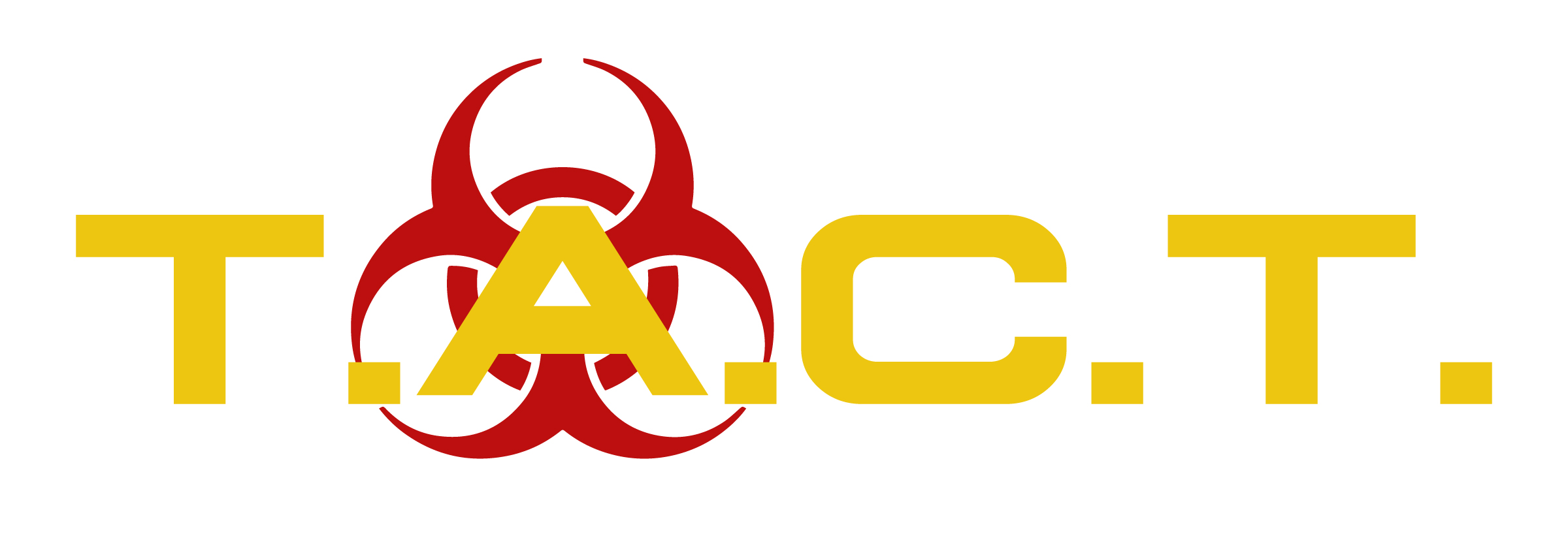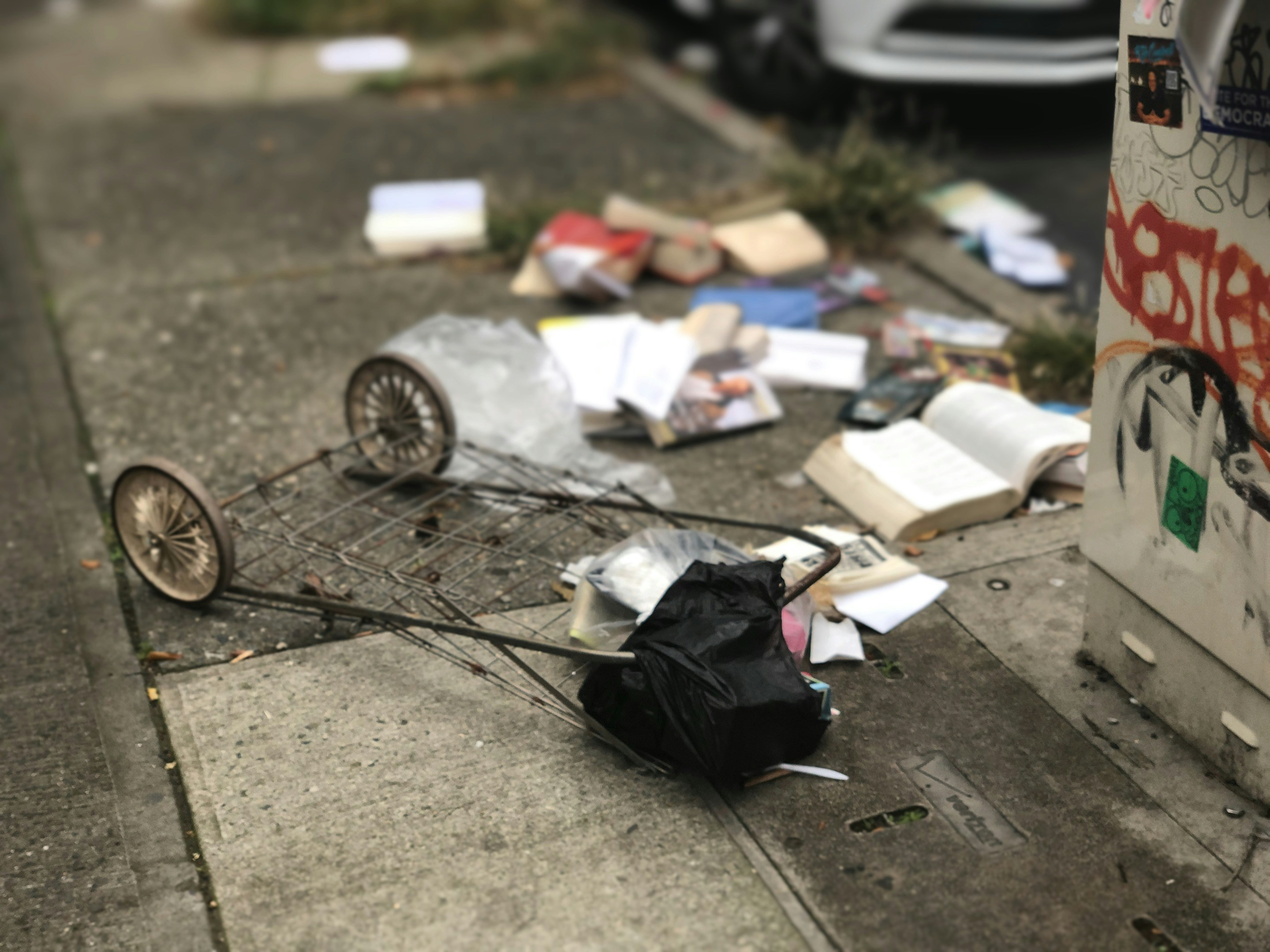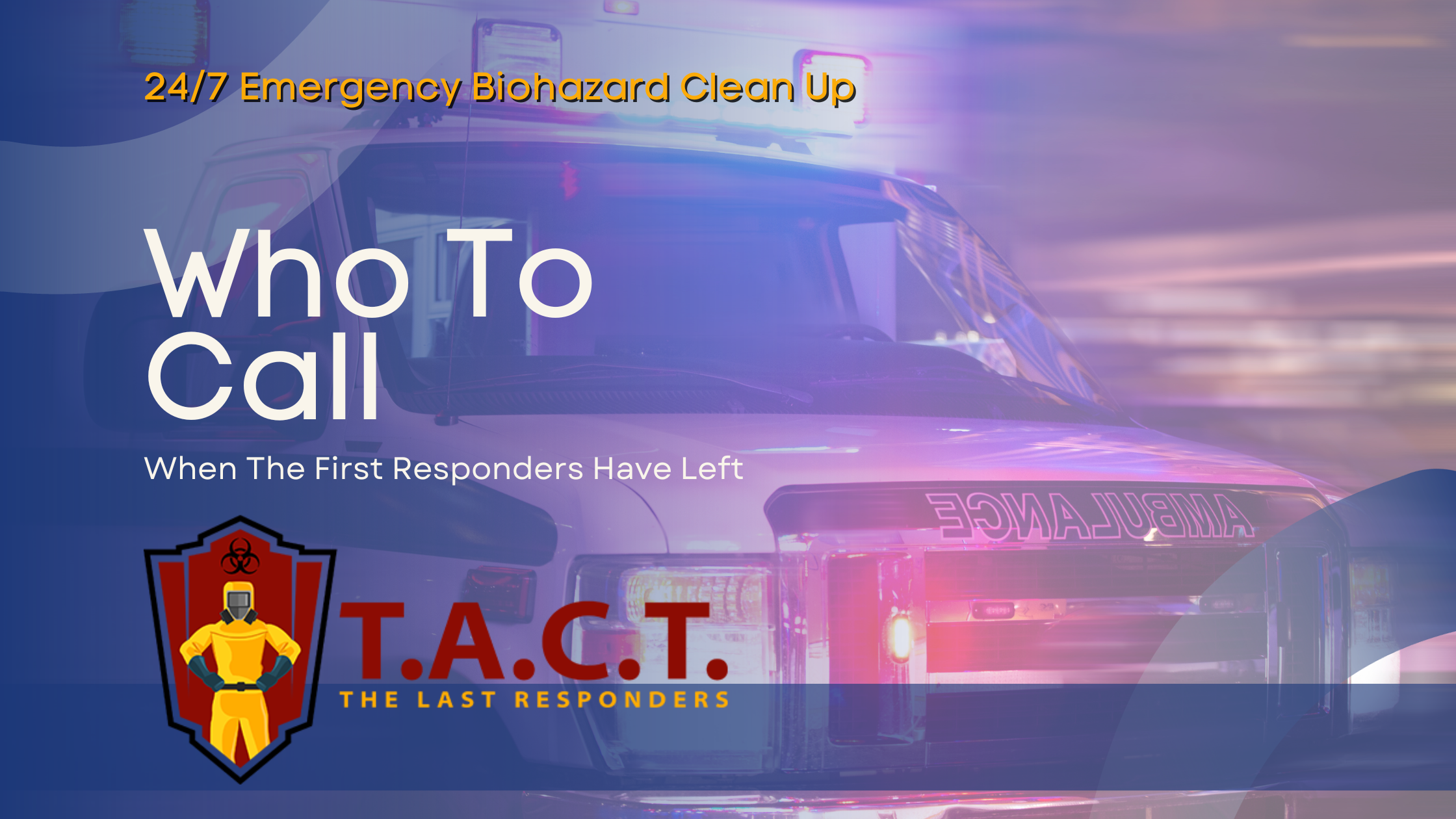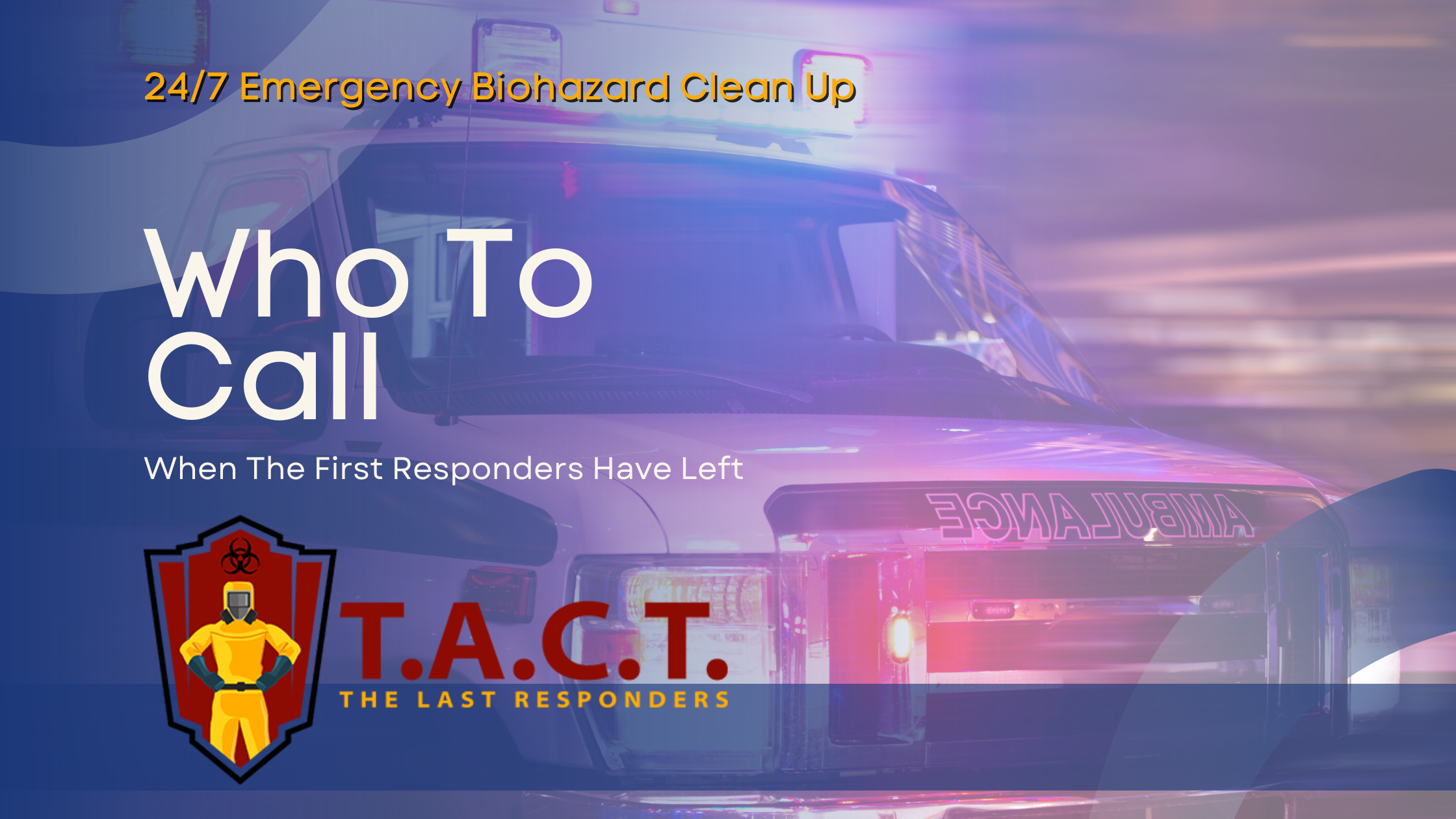Emergency Biohazard Cleanup Atlanta | 24/7 Response

Emergency Biohazard Cleanup Services: 24/7 Support in Atlanta
When biohazard emergencies strike, every minute counts. A burst water pipe flooding your basement at midnight. A traumatic event that leaves your family home contaminated with dangerous biological materials. A crime scene that requires immediate professional attention before contamination spreads. These situations don't wait for convenient business hours, and neither should your response.
The reality is stark: biological contaminants begin spreading immediately, creating compounding health risks with each passing hour. Understanding why immediate biohazard response Atlanta is critical can mean the difference between manageable remediation and extensive property damage—or worse, serious health complications for you and your loved ones.
This comprehensive guide reveals why emergency response times matter so much in biohazard situations and how professional 24/7 services protect both your property and your family when disaster strikes without warning.
Why Every Minute Matters in Biohazard Emergencies
Biological contamination follows predictable patterns of spread and intensification. What starts as a contained incident rapidly transforms into a complex remediation challenge that grows more dangerous and expensive with each passing hour.
The Science of Pathogen Proliferation
Bloodborne pathogens like HIV, Hepatitis B, and Hepatitis C can survive outside the human body for days or even weeks under the right conditions. Within the first few hours of exposure to air, these pathogens begin establishing themselves on surfaces, penetrating porous materials, and creating invisible zones of contamination that extend far beyond the visible damage.
Temperature and humidity accelerate this process dramatically. In Georgia's warm, humid climate, biological materials decompose faster and spread contamination more rapidly than in cooler, drier regions. What might take 24 hours to penetrate subflooring in other climates can happen in just 8-12 hours in North Atlanta's environment.
The 72-Hour Critical Window
Research shows that the first 72 hours after a biohazard incident are critical for preventing permanent damage and minimizing health risks. During this window:
- Hours 1-6: Pathogens begin establishing surface colonies but remain largely contained to the immediate area
- Hours 6-24: Contamination begins penetrating porous materials like carpet padding, drywall, and wood subflooring
- Hours 24-48: Bacterial growth accelerates, odors intensify, and contamination spreads to adjacent areas
- Hours 48-72: Deep penetration into structural materials occurs, making complete remediation significantly more complex and expensive
Professional emergency biohazard services North Atlanta teams understand these timelines and respond accordingly, bringing the right equipment and expertise to stop contamination spread before it reaches critical levels.
The Hidden Costs of Delayed Response
Many families hesitate to call professional services immediately, hoping the situation might be manageable or worrying about costs. However, delayed response typically results in far higher expenses and more extensive property damage than immediate professional intervention.
Exponential Damage Progression
Biohazard contamination doesn't spread linearly—it compounds exponentially. A crime scene that might require same day crime scene cleanup involving one room and basic surface treatment can expand to multiple rooms requiring structural demolition if left untreated for even 48 hours.
Consider a typical scenario: A traumatic incident occurs on a Friday evening. By Monday morning, what started as surface contamination has penetrated carpet padding, seeped into subflooring, and begun affecting adjacent rooms through air circulation systems. The remediation cost can easily triple or quadruple compared to immediate response.
Insurance Complications
Insurance companies recognize the importance of immediate action in biohazard situations. Many policies require prompt notification and mitigation efforts to maintain full coverage. Delayed response can result in denial of claims or reduced settlements, leaving families responsible for extensive remediation costs that could have been covered with immediate professional intervention.
Health Risk Amplification
The health risks associated with biohazard exposure intensify rapidly over time. Airborne pathogens spread through HVAC systems, contaminated materials off-gas dangerous compounds, and bacterial colonies establish throughout the property. Family members, neighbors, and even first responders face increasing exposure risks with each hour of delay.
Common Emergency Scenarios Requiring Immediate Response
Understanding when to call for emergency services helps families respond appropriately when crisis strikes. These situations require immediate biohazard response Atlanta regardless of the time of day or night.
Violent Crime Scenes
Homicides, assaults, and other violent crimes create complex contamination patterns that require immediate professional attention. Blood spatter can travel surprising distances, contaminating surfaces throughout multiple rooms. Without proper containment and cleanup, these scenes pose immediate health risks to family members, investigators, and emergency responders.
The emotional trauma of violent crime is compounded when families face the prospect of cleaning contaminated scenes themselves. Professional teams provide not only technical expertise but also compassionate support that allows families to focus on healing rather than hazardous cleanup.
Unattended Deaths
When someone passes away alone and remains undiscovered for any period, the natural decomposition process creates extensive contamination that spreads rapidly. Bodily fluids seep into flooring and wall systems, while airborne contaminants circulate throughout the property via heating and cooling systems.
These situations require immediate response to prevent contamination from spreading beyond the immediate area. Professional teams arrive with specialized equipment to contain the scene, remove contaminated materials, and begin the decontamination process before damage becomes irreversible.
Traumatic Accidents
Serious accidents resulting in significant blood loss create immediate biohazard conditions requiring professional intervention. Whether occurring in homes, businesses, or public spaces, these incidents pose health risks that increase with each passing hour.
Suicide Scenes
The aftermath of suicide requires immediate compassionate professional attention. Beyond the technical challenges of biohazard cleanup, these situations demand sensitivity and discretion that allows families to grieve without additional trauma from attempting dangerous cleanup themselves.
The Professional Emergency Response Process
24/7 trauma cleanup Georgia services follow systematic protocols designed to contain contamination, protect public health, and restore safety as quickly as possible.
Immediate Assessment and Containment
Emergency response begins with rapid scene assessment by certified technicians who arrive prepared for the worst-case scenario. Within minutes of arrival, teams establish containment barriers to prevent contamination spread while conducting comprehensive evaluation of the affected area.
This assessment considers factors invisible to untrained observers: air currents that might spread airborne contaminants, structural pathways that allow fluid penetration, and environmental conditions that accelerate pathogen growth. Teams use thermal imaging and moisture detection equipment to identify hidden contamination that would otherwise go unnoticed until much later.
Rapid Deployment of Specialized Equipment
Professional emergency response requires equipment that most restoration companies don't maintain in ready-to-deploy condition. Emergency teams arrive with:
Industrial Air Scrubbers: These units immediately begin filtering airborne contaminants while establishing negative pressure to prevent contamination spread to clean areas.
Rapid Extraction Systems: Truck-mounted and portable extraction units remove standing fluids quickly, preventing further penetration into building materials.
Immediate Containment Materials: Plastic sheeting, tape, and support structures create instant barriers that isolate contaminated areas from the rest of the property.
Personal Protective Equipment: Full hazmat suits, respiratory protection, and specialized tools allow technicians to work safely in contaminated environments from the moment they arrive.
24/7 Availability and Response Capabilities
True emergency response means having qualified technicians available around the clock, not just answering services that take messages for callback during business hours. Professional emergency biohazard services North Atlanta maintain staffing levels that support immediate dispatch regardless of when incidents occur.
This availability extends beyond just having people on call. Emergency response requires maintaining fully stocked vehicles, backup equipment supplies, and established relationships with disposal facilities that accept biohazardous materials 24 hours a day.
Advanced Technologies for Rapid Remediation
Modern emergency biohazard cleanup utilizes cutting-edge technologies that accelerate the remediation process while ensuring complete safety and thoroughness.
Real-Time Air Quality Monitoring
Advanced air monitoring systems provide continuous assessment of airborne contaminants during emergency response. These systems detect dangerous gases released during decomposition, measure airborne pathogen levels, and confirm when areas are safe for extended occupancy by cleanup teams.
Real-time monitoring allows teams to adjust their approach dynamically, ensuring worker safety while maximizing efficiency during time-critical response operations.
Rapid Molecular Decontamination
Hydroxyl generators and advanced oxidation systems break down contaminants at the molecular level, neutralizing both pathogens and odor compounds much faster than traditional cleaning methods alone. These technologies work continuously during the cleanup process, reducing overall project timelines while ensuring more thorough decontamination.
Thermal Imaging for Hidden Contamination Detection
Infrared cameras identify temperature variations that indicate hidden moisture and contamination within wall cavities, under flooring, and in other concealed areas. This technology prevents contaminated materials from being overlooked during emergency response, reducing the likelihood of future problems that could require additional remediation.
Documentation and Evidence Preservation
Emergency response teams understand that biohazard incidents often involve ongoing legal proceedings. Advanced documentation systems capture detailed photographic and video records of contamination patterns, cleanup procedures, and final results while preserving potential evidence for law enforcement or insurance purposes.
Coordination with Emergency Services
Professional biohazard cleanup companies work closely with law enforcement, fire departments, and medical examiners to ensure seamless emergency response that supports ongoing investigations while protecting public health.
Law Enforcement Coordination
Crime scene cleanup must be carefully coordinated with ongoing investigations to ensure evidence preservation while addressing immediate health hazards. Professional teams understand these requirements and work within established protocols that support law enforcement needs while beginning critical remediation work.
This coordination includes understanding when cleanup can begin, which areas require evidence preservation, and how to document the scene appropriately for potential legal proceedings.
Fire Department and EMS Collaboration
When biohazard incidents occur alongside other emergencies, cleanup teams coordinate with fire and medical personnel to ensure comprehensive response. This collaboration prevents conflicting cleanup efforts while ensuring all safety hazards are addressed appropriately.
Public Health Department Notification
Certain biohazard incidents require notification of local health departments to prevent community exposure risks. Professional cleanup companies understand these reporting requirements and handle notifications appropriately while maintaining client confidentiality where possible.
Insurance and Financial Considerations for Emergency Services
Emergency biohazard cleanup is typically covered under homeowner's insurance policies, but understanding coverage requirements helps ensure proper claim processing and reimbursement.
Immediate Documentation Requirements
Insurance companies require prompt notification and thorough documentation of biohazard incidents. Professional emergency response teams understand these requirements and provide detailed records that support successful insurance claims.
This documentation includes photographic evidence of contamination, detailed scope of work descriptions, and comprehensive cost breakdowns that clearly justify all remediation activities.
Coverage for Emergency Response
Most insurance policies specifically cover emergency response costs for biohazard incidents, recognizing that immediate action prevents more extensive damage and higher overall claims costs. However, coverage may be reduced or denied if policyholders fail to take prompt action to mitigate damage.
Professional teams work directly with insurance adjusters to ensure all covered work is properly documented and approved, minimizing out-of-pocket costs for families dealing with traumatic situations.
Cost Management During Emergencies
While emergency response may seem expensive, professional teams focus on cost-effective solutions that minimize overall project expenses. By preventing damage progression and contamination spread, immediate response typically reduces total remediation costs significantly compared to delayed intervention.
Choosing the Right Emergency Response Partner
When biohazard emergencies strike, having a trusted response partner already identified can save crucial time during the critical first hours. Key factors to consider when selecting an emergency service provider include:
True 24/7 Availability
Verify that companies offer genuine around-the-clock response with qualified technicians, not just answering services. Ask about typical response times and staffing levels maintained during nights, weekends, and holidays.
Local Knowledge and Rapid Response Capability
Local companies understand area-specific regulations, maintain shorter response times, and have established relationships with regional emergency services. This local presence enables faster response and more effective coordination during emergencies.
Comprehensive Equipment and Training
Emergency response requires specialized equipment and extensive technician training. Verify that companies maintain current certifications, carry appropriate insurance coverage, and invest in ongoing training for their emergency response teams.
Proven Track Record
Look for companies with documented experience handling emergency biohazard situations similar to yours. References from law enforcement, insurance companies, and other professionals provide insight into reliability and competence during high-stress emergency situations.
Taking Immediate Action When Crisis Strikes
Biohazard emergencies create situations where hesitation can have lasting consequences for both safety and financial well-being. Understanding the importance of immediate professional response helps families make informed decisions during crisis situations when clear thinking may be difficult.
The complexity of modern biohazard remediation, combined with strict regulatory requirements and serious health risks, makes professional intervention essential rather than optional. Attempting DIY cleanup of biohazard situations endangers health, violates regulations, and often results in incomplete remediation that creates ongoing problems.
Professional immediate biohazard response Atlanta services provide more than technical expertise—they offer peace of mind during life's most challenging moments. By maintaining true 24/7 availability and rapid response capabilities, these services ensure that help is available exactly when it's needed most.
When biohazard emergencies affect your property, remember that immediate action protects both your family's health and your financial investment. The right emergency response partner combines technical competence with compassionate support, providing comprehensive solutions during situations that no family should face alone.
Don't wait for business hours when biohazard emergencies strike. Contact qualified emergency response professionals immediately to protect what matters most—your family's safety and your property's future.
Meta Title: Emergency Biohazard Cleanup Atlanta | 24/7 Response
Meta Description: Emergency biohazard cleanup services in Atlanta available 24/7. Immediate response for crime scenes, trauma cleanup, and biological contamination.
Latest news

Delve into the essential stages of trauma scene cleanup in Atlanta, GA, providing insights into professional practices that ensure thorough restoration.
Read More
Learn why professional biohazard cleanup in Atlanta is crucial for safety. Discover the risks of DIY cleanup and the benefits of hiring certified experts.
Read More
